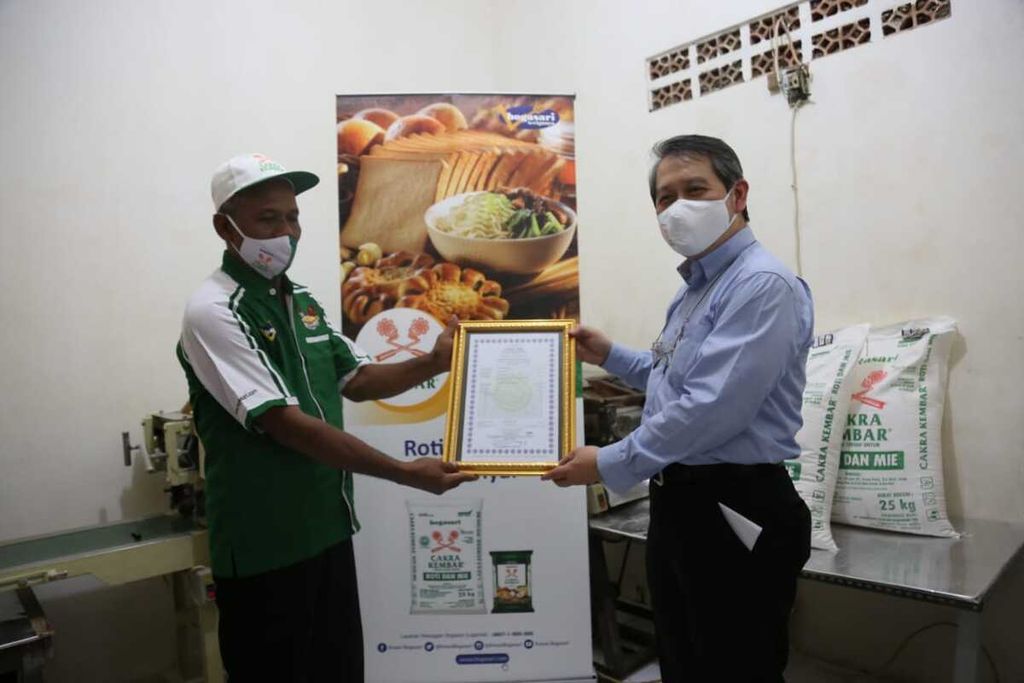Indonesia Needs to Improve Halal Certification Standards
The verification of halal certification is very detailed. The process from upstream to downstream is carefully checked to ensure the products are safe, clean, hygienic and environmentally friendly.

Halal certificates for 50 MSMEs Mie Mitra Bogasari were handed over by the Deputy Head of the Bogasari Division to Atok Sudirman, the owner of the Atok Sudirman Chicken Noodle business at his business location in Cilincing, North Jakarta, on Tuesday (12/23/2020).
JAKARTA, KOMPAS — The growing consumption of halal food around the world has offered great potential for Indonesian industry players, especially those from the food, beverage and fashion sectors. However, Indonesia needs to improve its halal certification standards to use market intelligence and provide better export data to gain a bigger share in the international halal food market.
The State of Global Islamic Economy Report 2020-2021 predicts the world halal food consumption will increase from US$1.17 trillion in 2019 to $1.38 trillion in 2024, while global Muslim fashion spending is projected to grow from $277 billion to $311 billion in the same period. The consumption of halal products is predicted to further expand, including in non-Muslim countries.